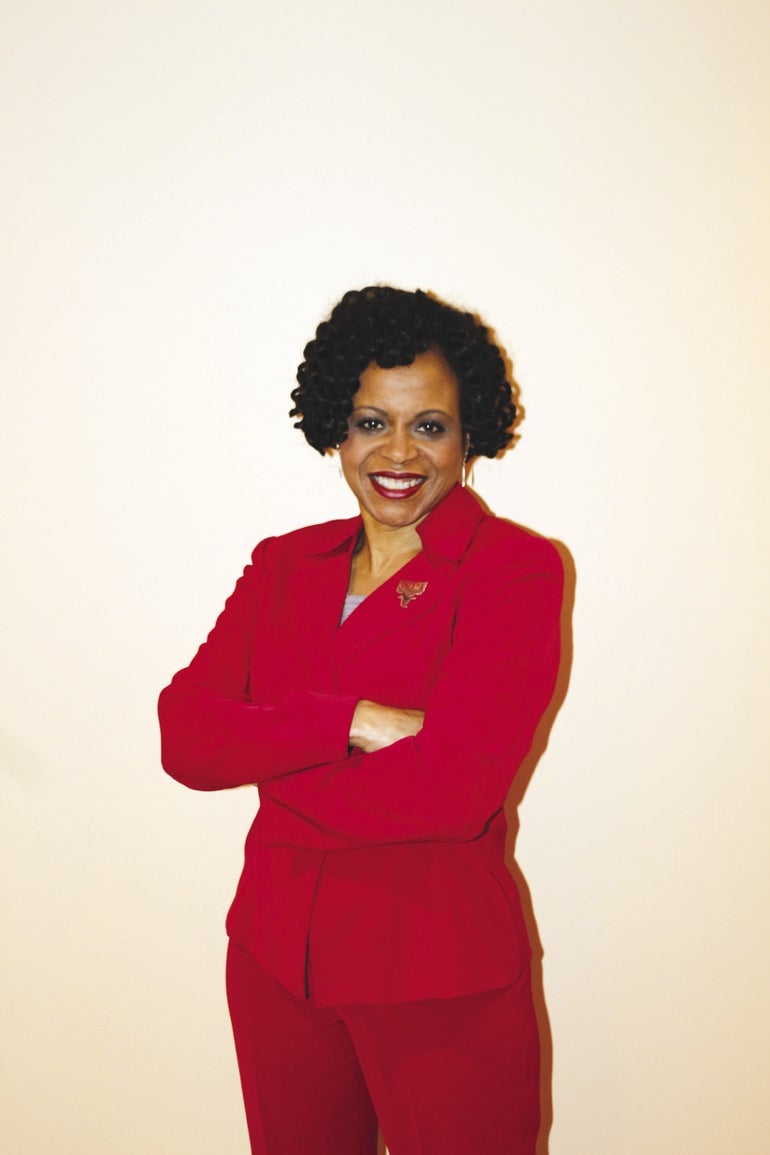On Jan. 1, Worcester Polytechnic Institute alumna Debora Jackson took over as dean of its Foisie Business School. A member of WPI’s board of trustees and experienced in STEM and business professions, Jackson brought a new level of diversity to the role: her background in seminary.
Get Instant Access to This Article
Subscribe to Worcester Business Journal and get immediate access to all of our subscriber-only content and much more.
- Critical Central Massachusetts business news updated daily.
- Immediate access to all subscriber-only content on our website.
- Bi-weekly print or digital editions of our award-winning publication.
- Special bonus issues like the WBJ Book of Lists.
- Exclusive ticket prize draws for our in-person events.
Click here to purchase a paywall bypass link for this article.
On Jan. 1, Worcester Polytechnic Institute alumna Debora Jackson took over as dean of its Foisie Business School. A member of WPI’s board of trustees and experienced in STEM and business professions, Jackson brought a new level of diversity to the role: her background in seminary.
A background in divinity seems like an odd fit for WPI’s business school.
I started matriculating to WPI in 1985, and I chose to come to WPI over other schools because I recognized the innovative culture here. So, who would hire someone with a background in ministry to lead the business school? WPI, that’s who. There is an innovation and a forward-thinking unique to here.
Why is it forward-thinking?
Business schools have to do more than just educate students on how to increase shareholder wealth and equity. That was the bottom line when I was in business school. Now, we have to teach our future business leaders how to be good corporate citizens, communal partners, stewards of the environment, and take care of employees. Those values were grounded into me at seminary. By having me at the helm, it shows that is what WPI values.
When did you first notice businesses wanting to exhibit these values?
For me, it started back in the 1980s. I started college thinking I was going to be a computer science major. Then I switched, saying “This isn’t important to me.” So I switched to something that was. Even from my early days working for Digital Equipment Corp., I wanted to make sure we were making a difference in the communities we operated in.
For example, when Digital Equipment Corp. started taking our process and production to different parts of the world – Puerto Rico, Ireland, Scotland – I wanted to make sure people on the production line were well paid and taken care of.
Do students today hold those values?
A lot of students are growing up with those values. I have a 17-year-old, Jadon, and he was the first one in our household scolding us for not recycling properly. There is just an awareness of being environmentally sustainable inherent to his generation.
Students today want to be enriched. We have students here who are talking about nonprofit leadership. I had students at Yale Divinity School – even in that theological setting – saying they weren't going to seminary to have a traditional career as a pastor; they wanted to go to Uganda and build schools. These things wouldn’t have occurred to me at that age. Now, to plant the seeds and fan the flames of these amazing values students hold is fabulous.
You are the first woman and person of color to lead WPI’s business school. What is it like to break those barriers?
I’ve spent my life being the first of something. I’ve always pursued very non-traditional paths. When I first started studying probabilities, there weren’t many women in those classes and no Black people. Even when I was a student at WPI, no one looked like me.
I am trying to break down preconceived notions of what it means to be in these fields, because they truly are open to anyone who wants these experiences.
I’ve written two books, and in them I had to give voice to my unique ways of being and unique ways of leading. The way that I might approach things might be different because I have a different perspective. I ensure my efforts are impacting the community positively.
The methods that might have marginalized me at one point in time, I am trying to pull on those experiences to be a better leader. For example, when I was in Scotland working with Digital Equipment Corp., when I walked out on the manufacturing floor, people asked me if I took a wrong turn. They thought I should have been with the secretaries.
To help counter those types of situations, I want to be as welcoming and inclusive as I can to everybody.
How can you increase diversity at WPI?
I am so proud of what we have done with gender diversity. We still are lacking in having more underrepresented domestic ethnic minorities. We can improve on that by building relationships.
We are a small private institution with a fairly hefty price tag. Students, particularly underrepresented domestic ethnic minorities interested in what we teach, will be in high demand. They will be offered lucrative financial aid packages from schools all over. We will not be able to compete on price, but I never want to. For communities of color, it is about relationships. If people know you, you can build that trust. Then, we can start to have a whole different conversation.
This interview was conducted and edited for length and clarity by WBJ editor Brad Kane.

